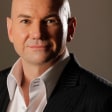Confidence Speakers
You've got a lineup to fill, but you're stuck on one thing: who's going to bring real presence to the stage? Someone who can speak on confidence without sounding like a motivational poster.
You're searching for confidence speakers... but how do you know who's actually worth booking?
Confidence speakers aren't just about pep talks. They help audiences shift the way they see themselves, communicate with clarity, and show up with purpose.
Whether it's for a team offsite, a podcast with depth, or a virtual summit that needs energy, the right speaker makes all the difference.
I've seen how confidence speakers can change the tone of an entire event. The best ones speak with honesty, clarity, and experience - not gimmicks.
They're not trying to hype people up. They help people show up.
This guide helps you find those voices. You'll learn what great confidence speakers actually do, what to look for, and who's doing it well in 2025.
Scroll through, get to know these confidence speakers, and book the one who fits your audience best.
Top Confidence Speakers List for 2026
Robin Owen
Helping you speak with confidence and leave a lasting impression
Paul Carr
Offering confidence - based on skills - to handle any audience.
Lisa Cobble
Everyone deserves to feel like a superhero
Steve Sapato
The most famous unfamous Emcee in America
John Mollura
Stop procrastinating, take control, build your legacy.
Jenn Espinosa-Goswami
Unlock Confidence, Impact, and Income with Public Speaking
Trish Springsteen
From invisible to unforgettable: Let your confidence shine.
Alyson Longe
Master public speaking (in person & on livestream), speak with authority, and turn your voice into income.
Jennifer Maxwell
Professional Uplifter & Possibility Expert who turns DISC-driven insights into confidence and connection.
What Makes a Great Confidence Speaker
Think about someone like Brené Brown. She doesn't shout. She doesn't posture. But when she speaks, people lean in. Why? Because she's grounded in her message, and she believes it. Great confidence speakers don't fake certainty-they cultivate it through lived experience, research, and relentless practice. They know their material inside out, but they also know how to read a room and pivot when needed.
And here's the kicker: they're not afraid to be vulnerable. That might sound counterintuitive, but real confidence isn't about being bulletproof. It's about being real. A great confidence speaker can admit what they don't know, share a failure, or laugh at themselves-and still keep the audience with them. That's power.
Whether they're speaking to a boardroom in Berlin or a virtual summit audience in Sydney, these speakers adapt their tone, language, and energy to the moment. They don't just deliver content-they create connection. And that's what makes them unforgettable.
How to Select the Best Confidence Speaker for Your Show
1. Define Your Audience and Outcomes.
- Who are you serving? Entrepreneurs? Students? Corporate teams?
- What do you want them to walk away with-motivation, practical tools, mindset shifts?
2. Search with Specificity.
- Use platforms like Talks.co to filter speakers by topic, tone, and experience level.
- Look for confidence speakers who've addressed similar audiences or industries.
3. Review Their Content.
- Watch full-length talks, not just highlight reels. Are they consistent? Do they hold attention?
- Check their speaker page for testimonials, past events, and audience feedback.
4. Assess Fit, Not Just Fame.
- A big name doesn't always mean big impact. A lesser-known speaker with a powerful story and strong delivery might resonate more deeply.
- Think about tone: Are they high-energy or calm and grounded? What fits your format?
5. Reach Out and Ask the Right Questions.
- What's their process for customizing talks?
- How do they handle Q&A or live interaction?
- Can they adapt to virtual, hybrid, or in-person formats?
The best confidence speaker for your show is the one who can meet your audience where they are-and take them somewhere better.
How to Book a Confidence Speaker
1. Start with a Clear Brief.
- Define your event's theme, audience profile, and desired outcomes.
- Include logistics like date, time zone, format (virtual, hybrid, or in-person), and budget range.
2. Use a Smart Platform.
- Platforms like Talks.co simplify the process by connecting event hosts with vetted speakers.
- Browse speaker profiles, watch sample talks, and read reviews-all in one place.
3. Reach Out with Purpose.
- When contacting a speaker, be specific. Mention why you think they're a good fit.
- Ask about availability, customization options, and technical requirements.
4. Confirm the Details.
- Once you've agreed on terms, lock in the date with a contract.
- Include clauses for cancellations, tech checks, and promotional responsibilities.
5. Prep Together.
- Schedule a pre-event call to align on audience expectations and flow.
- Share any materials or themes in advance so the speaker can tailor their message.
Booking a confidence speaker is about more than filling a slot-it's about creating a moment your audience will remember. Do the groundwork, and you'll set the stage for something powerful.
Common Questions on Confidence Speakers
What is a confidence speaker
These speakers often come from diverse backgrounds: psychology, leadership, education, entrepreneurship, even performing arts. What unites them is their ability to translate complex ideas about self-belief into relatable, actionable insights. They might speak at corporate events, schools, summits, or online platforms-anywhere people are looking to grow their inner strength.
A confidence speaker typically shares frameworks, personal stories, and practical tools to help audiences overcome self-doubt, imposter syndrome, or fear of failure. They're often invited to speak on topics like assertive communication, mindset shifts, or personal branding.
Unlike general keynote speakers, confidence speakers zero in on the internal barriers that hold people back. Their goal? To help individuals walk away not just inspired, but equipped to act with more clarity and courage in their personal or professional lives.
Why is a confidence speaker important
In today's fast-paced, high-pressure world, self-doubt is more common than most people admit. Whether it's a startup founder pitching to investors, a student preparing for exams, or a team leader navigating change-confidence is the fuel that drives performance. A confidence speaker helps individuals tap into that fuel source.
They don't just motivate-they reframe. By challenging limiting beliefs and offering new perspectives, these speakers help audiences rewire how they think about themselves. This shift can lead to better decision-making, stronger communication, and more resilience in the face of setbacks.
In corporate settings, confidence speakers can boost employee engagement and leadership development. In educational spaces, they can empower students to take risks and speak up. And in entrepreneurial circles, they help founders push through fear and take bold action.
The impact of a confidence speaker isn't just felt in the moment-it ripples out into how people lead, collaborate, and grow long after the talk ends.
What do confidence speakers do
Here's a breakdown of what confidence speakers actually do:
- Deliver Keynotes and Workshops. They speak at conferences, summits, schools, and corporate events, focusing on topics like overcoming fear, building self-trust, and developing a confident mindset.
- Customize Content for Audiences. Whether it's a room full of executives or a virtual audience of students, they tailor their message to meet the specific needs and challenges of that group.
- Use Storytelling and Research. They blend personal stories with evidence-based strategies from psychology, neuroscience, or leadership theory to make their message both relatable and credible.
- Facilitate Interactive Exercises. Many confidence speakers include live coaching, audience participation, or reflective prompts to help people apply what they're learning in real time.
- Support Long-Term Growth. Some offer follow-up resources, online courses, or coaching to help audiences continue building confidence beyond the talk.
From a high school in Nairobi to a tech summit in San Francisco, confidence speakers are helping people everywhere step into their power-one talk at a time.
How to become a confidence speaker
1. Define Your Message and Audience
- What do you want to say? Confidence speakers often focus on mindset, self-esteem, overcoming fear, or leadership presence. Pick a lane.
- Who needs to hear it? Students, entrepreneurs, corporate teams, or even parents? Knowing your audience shapes your tone and delivery.
2. Develop Your Signature Talk
- Create a 20- to 45-minute talk that delivers value, tells a story, and ends with a takeaway.
- Use frameworks like the Hero's Journey or the Problem-Solution-Transformation model to structure your talk.
- Practice on small stages: local meetups, Toastmasters, or virtual events.
3. Build Your Online Presence
- Create a speaker page with your bio, topics, testimonials, and a video reel. Tools like Talks.co make this easy and help you connect with event hosts.
- Post short clips of your talks on LinkedIn, Instagram, or YouTube to build credibility.
4. Network with Event Organizers
- Use platforms like Talks.co to find shows and hosts looking for speakers.
- Reach out directly to podcast hosts, webinar organizers, or local business groups.
- Offer to speak for free initially to build your portfolio and get testimonials.
5. Monetize and Scale
- Once you've got a few talks under your belt, start charging. Package your talk with a workshop or coaching offer.
- Consider writing a book, launching a course, or hosting your own virtual summit to expand your brand.
Becoming a confidence speaker isn't about being perfect. It's about being real, prepared, and passionate. Start where you are, and build from there.
What do you need to be a confidence speaker
1. A Clear Core Message
You need a message that resonates. Confidence speakers often focus on topics like overcoming fear, building self-worth, or mastering public speaking. Your message should be authentic to your experience and tailored to your audience's needs.
2. Communication Skills
You don't need to be the most polished speaker in the world, but you do need to be clear, engaging, and relatable. Practice storytelling, use vocal variety, and learn how to read a room-whether virtual or in person.
3. A Platform to Share From
Set up a speaker page that showcases your bio, topics, testimonials, and a short video of you speaking. Platforms like Talks.co make it easy to connect with event organizers and get booked for virtual summits or podcasts.
4. Personal Brand and Online Presence
People book speakers they can trust. Build your brand on social media, share insights regularly, and engage with your audience. A strong LinkedIn profile or Instagram presence can go a long way.
5. Continuous Learning and Feedback
Even the best speakers keep learning. Attend workshops, join speaker groups, and ask for feedback after every talk. Confidence grows with experience, and so does your impact.
Ultimately, being a confidence speaker is about helping others believe in themselves. And that starts with you believing in your message and your ability to deliver it.
Do confidence speakers get paid
Market Demand
Confidence is a universally relevant topic. From corporate leadership training to youth empowerment events, the demand for confidence speakers spans industries and age groups. This broad appeal increases the potential for paid gigs.
Experience and Reputation
New speakers might start with unpaid or low-fee engagements to build credibility. But once you've built a reputation, especially with a strong speaker page and video reel, you can command higher fees.
Event Type and Budget
- Corporate keynote: $2,000 to $20,000+
- Virtual summit: $0 to $5,000 (often bundled with lead gen or product sales)
- School/university talk: $500 to $3,000
- Workshop or training session: $1,000 to $10,000
Pros
- High earning potential for top-tier speakers.
- Opportunities to upsell coaching, books, or courses.
- Global reach via virtual events.
Cons
- Inconsistent income for beginners.
- Travel and prep time can eat into profits.
- Some events offer exposure instead of pay.
In short, yes-confidence speakers get paid. But like any business, it takes time, strategy, and positioning to turn speaking into a reliable income stream.
How do confidence speakers make money
1. Paid Speaking Engagements
This is the most direct route. Speakers get paid to deliver keynotes, workshops, or breakout sessions at conferences, corporate events, schools, or summits. Rates vary based on experience and event type.
2. Coaching and Consulting
Many confidence speakers offer 1-on-1 or group coaching programs. These can range from helping clients with public speaking anxiety to building executive presence. Some also consult with companies on leadership development or team confidence.
3. Digital Products and Courses
Online courses, ebooks, and downloadable workbooks are scalable ways to earn. For example, a speaker might launch a course on 'Confident Communication for Entrepreneurs' and sell it through their website or platforms like Teachable.
4. Affiliate Marketing and Sponsorships
Speakers with a strong online presence can monetize through affiliate links or brand sponsorships. For instance, promoting a confidence-building app or book and earning a commission.
5. Hosting Events or Virtual Summits
Using platforms like Zoom, speakers can host their own events, bring in other experts, and monetize through ticket sales, VIP upgrades, or backend offers.
6. Books and Publications
Publishing a book not only builds authority but also creates passive income. Many speakers use their books as a lead magnet or sell them at events.
The key is diversification. The most successful confidence speakers don't rely on just one income stream-they build an ecosystem around their message.
How much do confidence speakers make
Entry-Level Speakers
- Typical speaking fee: $0 to $1,000 per talk.
- Annual income: $5,000 to $30,000 (often part-time or side hustle).
Mid-Level Speakers
- Speaking fee: $1,000 to $5,000 per talk.
- Annual income: $30,000 to $100,000.
- Often includes coaching, digital products, or workshops.
Top-Tier Speakers
- Speaking fee: $5,000 to $25,000+ per keynote.
- Annual income: $100,000 to $500,000+.
- These speakers often have books, courses, and a strong personal brand.
Celebrity-Level Speakers
- Speaking fee: $50,000 to $200,000+.
- These are rare and usually include bestselling authors or media personalities.
Factors That Influence Income
- Niche specificity: Confidence speakers who target corporate leadership or high-stakes industries often earn more.
- Online presence: A strong brand and following can lead to higher fees and more bookings.
- Geographic reach: Speakers who offer virtual talks can scale faster and access global markets.
Confidence speaking can be a lucrative career, but like any business, it requires strategy, consistency, and value delivery to grow income over time.
How much do confidence speakers cost
1. Type of Event
- Local community events or school talks: $500 to $2,000.
- Corporate workshops or team trainings: $2,000 to $10,000.
- Keynote speeches at conferences: $5,000 to $25,000+.
- Virtual summits or webinars: $0 to $5,000 (some may speak for free in exchange for exposure or lead generation).
2. Speaker's Experience and Brand
- New or emerging speakers: $500 to $2,000.
- Mid-level professionals with a speaker page and testimonials: $2,000 to $7,500.
- High-profile or celebrity speakers: $10,000 to $50,000+.
3. Add-ons and Customization
- Custom workshops or training modules can increase the cost.
- Travel, lodging, and per diem are often additional for in-person events.
- Some speakers offer bundled packages that include follow-up coaching or digital resources.
4. Location and Format
- Virtual events tend to cost less due to no travel.
- International bookings may involve higher fees due to logistics.
Hiring a confidence speaker is an investment in mindset and performance. Whether you're a startup founder looking to inspire your team or a school administrator planning a student event, there's a speaker for every budget.
Who are the best confidence speakers ever
- Tony Robbins: Known globally for his high-energy seminars and transformational coaching, Robbins has helped millions build confidence through mindset shifts and peak performance strategies.
- Les Brown: A master storyteller, Les Brown's speeches on believing in yourself and pushing past limitations have inspired generations.
- Brené Brown: Though primarily a researcher, her TED Talk on vulnerability redefined confidence as the courage to be seen. Her work bridges emotional intelligence with leadership.
- Zig Ziglar: A pioneer in motivational speaking, Ziglar's timeless messages on self-worth and positive thinking continue to influence speakers today.
- Oprah Winfrey: While not a traditional speaker, Oprah's speeches at commencements and public forums have empowered millions to own their voice and story.
- Eric Thomas (ET the Hip Hop Preacher): Known for his raw, passionate delivery, ET speaks directly to underrepresented communities about grit and self-belief.
- Mel Robbins: Her '5 Second Rule' has become a go-to tool for overcoming hesitation and building confidence in action.
- Jim Rohn: A mentor to many top speakers, Rohn's calm, wise delivery and focus on personal responsibility laid the foundation for modern confidence speaking.
These speakers didn't just talk about confidence-they embodied it. Their legacy continues to shape the speaking world today.
Who are the best confidence speakers in the world
- Jay Shetty (UK/USA): Former monk turned speaker, Jay blends ancient wisdom with modern storytelling to help people find purpose and confidence.
- Lisa Nichols (USA): A powerhouse speaker who went from public assistance to global stages, Lisa teaches confidence through authenticity and storytelling.
- Simon Sinek (UK/USA): Known for 'Start With Why', Simon's talks on leadership and belief systems help professionals lead with confidence.
- Priya Kumar (India): A bestselling author and motivational speaker, Priya inspires corporate and youth audiences across Asia with her high-energy talks.
- Nick Vujicic (Australia/USA): Born without limbs, Nick's speeches on self-worth and resilience have touched millions worldwide.
- Inky Johnson (USA): A former athlete turned speaker, Inky's story of overcoming a life-changing injury is a masterclass in inner strength.
- Julian Treasure (UK): Known for his TED Talks on communication, Julian teaches how confident speaking starts with confident listening.
- Nilofer Merchant (USA): A business thinker and speaker, Nilofer empowers audiences to find their 'onlyness'-the unique value they bring to the table.
- Muniba Mazari (Pakistan): An artist and activist, Muniba speaks globally about confidence, disability, and female empowerment.
These speakers are shaping the global narrative on confidence today. Whether through corporate keynotes, TED Talks, or grassroots events, they're helping people believe in themselves-one talk at a time.
Common myths about confidence speakers
This one's everywhere. People assume that if you're not naturally outgoing or charismatic, you can't become a confidence speaker. But that's just not true. Confidence is a skill, not a trait. Take Susan Cain, author of 'Quiet'. She's an introvert who built a speaking career by leaning into her strengths-preparation, empathy, and storytelling. She didn't start with a booming voice or a magnetic stage presence. She built it, step by step.
Myth 2: You need to be loud and energetic to be effective.
There's this idea that confidence equals volume. But some of the most impactful speakers use calm, measured tones. Think of Brené Brown. Her power comes from vulnerability, not volume. Confidence isn't about shouting-it's about clarity, conviction, and connection.
Myth 3: Confidence speakers never feel nervous.
Even seasoned pros get the jitters. The difference is, they know how to channel that energy. Tony Robbins has talked about using rituals before going on stage to get into the right mindset. Nerves aren't a sign you're unqualified-they're a sign you care.
Myth 4: You need a big stage or a TED Talk to be a real confidence speaker.
Nope. Confidence speakers show up in boardrooms, classrooms, webinars, and even Instagram Lives. It's not about the platform size. It's about impact. Some of the most influential voices today are building their audiences through niche podcasts or LinkedIn videos.
Myth 5: You have to have all the answers.
Confidence isn't about knowing everything. It's about owning what you do know and being honest about what you don't. Audiences connect with authenticity. Saying 'I don't know, but here's how I'd find out' can actually boost your credibility.
Case studies of successful confidence speakers
Then there's Eric Thomas, the 'Hip Hop Preacher'. He didn't come from a polished background. He was homeless as a teen. But his grit and passion turned him into one of the most sought-after motivational voices in education and sports. His speeches aren't just hype-they're grounded in lived experience. That authenticity resonates with students, athletes, and CEOs alike.
In the corporate world, Carla Harris, a senior executive at Morgan Stanley, brings confidence speaking into boardrooms. She's known for her 'Carla's Pearls'-bite-sized leadership lessons delivered with warmth and authority. Her talks blend personal stories with actionable advice, making her a standout in finance and beyond.
Across the globe, Australian speaker Turia Pitt has inspired thousands with her story of surviving severe burns during an ultramarathon. Her talks aren't just about resilience-they're about redefining what's possible. She's proof that confidence speaking isn't about perfection. It's about presence.
These speakers come from wildly different backgrounds. But they share a few things: clarity of message, commitment to growth, and a willingness to be seen. That's what makes a confidence speaker successful-not just a mic and a stage.
Future trends for confidence speakers
- Personalized delivery is becoming the norm. AI tools are helping speakers tailor content to specific audiences. Imagine adjusting tone, examples, and even pacing based on real-time feedback. Tools like Yoodli are already analyzing speech patterns to help speakers improve.
- Micro-communities are gaining traction. Instead of aiming for massive audiences, confidence speakers are building tight-knit groups on platforms like Circle or Discord. These smaller spaces allow for deeper connection and more interactive sessions.
- Hybrid formats are here to stay. Post-2020, the best confidence speakers are mastering both in-person and virtual delivery. That means knowing how to engage a Zoom room just as well as a live audience. Expect more interactive tech-like polls, breakout rooms, and real-time Q&A-to become standard.
- Diversity of voice is expanding. We're seeing more speakers from underrepresented regions and backgrounds stepping into the spotlight. Audiences are hungry for fresh perspectives, and platforms are finally catching up. Confidence speaking is no longer dominated by one demographic or accent.
- Mental wellness is part of the message. More speakers are blending confidence with emotional intelligence, mindfulness, and mental health. It's not just about 'power poses' anymore. It's about sustainable self-belief.
In short, the future of confidence speaking is more inclusive, tech-savvy, and audience-centered. Whether you're speaking to five people in a mastermind or 5,000 on a livestream, the game is evolving-and the best speakers are evolving with it.
Tools and resources for aspiring confidence speakers
- Yoodli. This AI-powered speech coach gives you feedback on filler words, pacing, and clarity. Ideal for practicing before a big talk or virtual event. Bonus: It works with Zoom recordings.
- SpeakerHub. A directory and marketplace for speakers. You can list your profile, find gigs, and connect with event organizers. Tip: Use the search filters to find events in your industry or region.
- Canva. Not just for social media-use it to design slide decks that actually look good. Clean visuals can boost your confidence and help your message land.
- Toastmasters International. A classic for a reason. Local clubs around the world offer a supportive space to practice public speaking. Especially useful if you're just starting out or want regular feedback.
- Descript. Record, transcribe, and edit your talks all in one place. Great for creating content from your speeches or analyzing your delivery.
- LinkedIn Learning. Courses on public speaking, storytelling, and presence. Tip: Look for instructors with real-world speaking experience, not just theory.
- Otter.ai. Use it to transcribe your practice sessions or live talks. Reviewing transcripts helps you spot patterns, overused phrases, or missed points.
These tools aren't just about polish-they're about practice. Use them to build confidence through repetition, feedback, and clarity. And remember: confidence isn't a switch you flip. It's a muscle you train.









